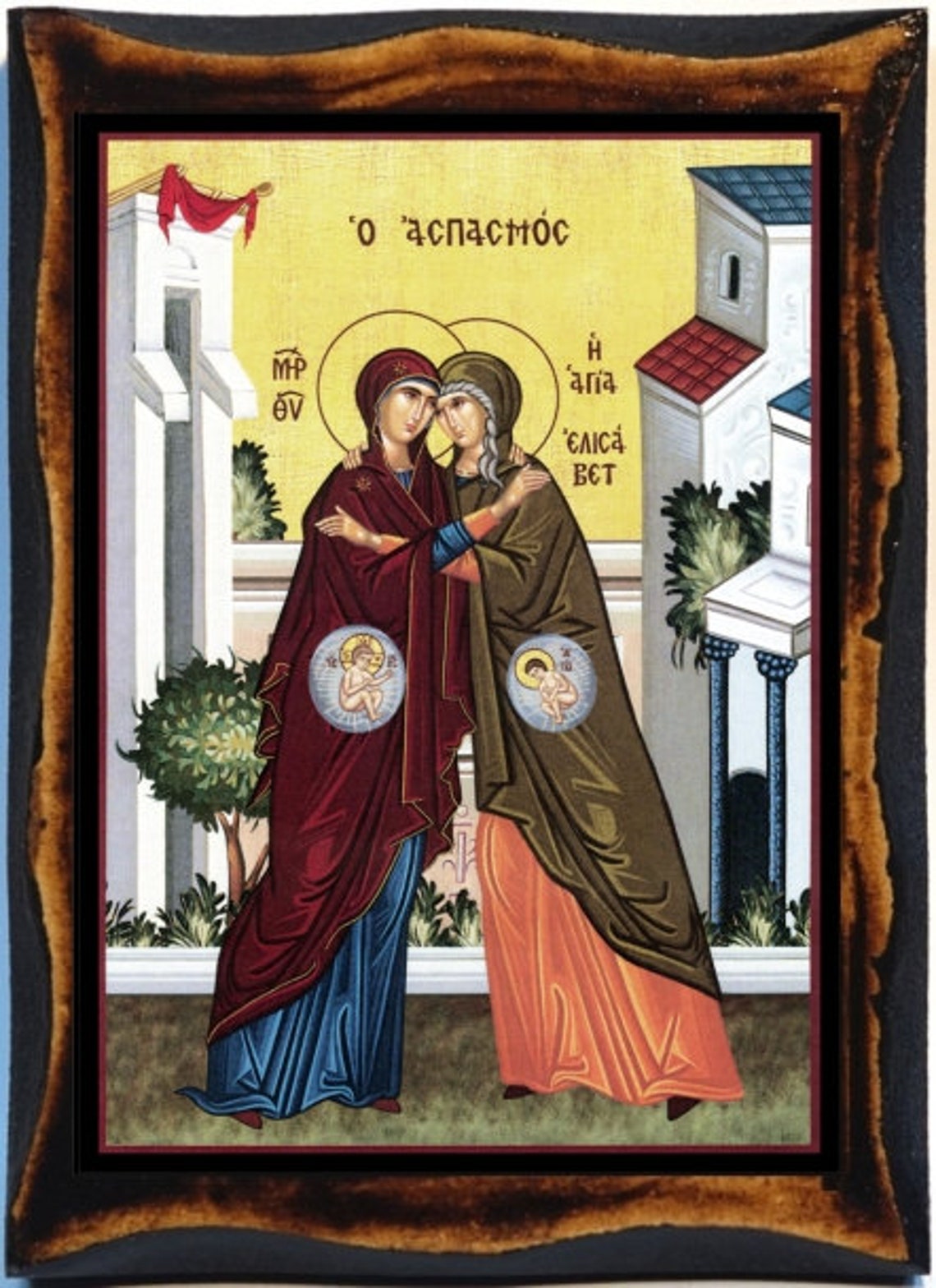This sermon was preached on the Third Sunday of Advent. A video of the sermon may be found by clicking here. The readings which inspired the sermon were the following:
©2024 The Rev. Seth Olson
Holy God, may my words be your words and when my words are not your words, may your people be wise enough to know the same. Amen.
A joke to begin: Did you know that "On Jordan's Banks the Baptist Cry" has another verse?
On Jordan's Banks the Baptists Cry,
If I were Baptist so would I.
They cannot dance,
They have no fun
That's why I am Episcopalian.
Okay, sorry to all Baptists and recovering Baptists, but it's too good not to tell given the readings and our Sequence Hymn.
Happy Third Sunday of Advent! As we look at our countdown timer—also known as the Advent Wreath—we note that we have arrived at the “pink” candle. The churchy name for this color is rose. Often because of this we get confused and think that since we sing “Lo, How A Rose E’re Blooming” about Mary that today is Mary’s Sunday. It’s not.
In our Advent art class, we have noted that Mary’s color is not pink, but blue. This Third Sunday of Advent with its rose candle was originally meant to be a break for those particularly austere monastics and Christians who took on particular disciplines to prepare for the coming of Christ at Christmas. Thus, when it was said in Latin the first words of the service were “Gaudete,” which means “Rejoice!” Of course, when the Gospel reading is this—we might struggle with the connection to rejoicing.
Plus, as we inch ever closer to kneeling before the makeshift crib to behold the Christ child, if you are anything like me, the distractions of final Christmas preparations are probably buzzing around your minds. You may have come into Holy Apostles this morning juggling thoughts of Amazon carts, grocery lists, and travel plans. But after hearing John the Baptist’s fiery words, your focus may have shifted. "Brood of vipers?" "Unquenchable fire?" This Gospel reading doesn’t exactly pair well with sugarplums and twinkle lights. How do we get from the wilderness of repentance to the wonder of Bethlehem?
Today’s Gospel, like a splash of cold water, shakes us awake. But let’s be honest—most of us don’t like being told we’re wrong. As a child, I hated getting in trouble. Scratch that—I hated getting caught. And the one person I really didn’t want on my case was my maternal grandfather, affectionally called “Bubba.”
Bubba’s go-to discipline line, “Do we need to go have a chat in the locker room?”, was enough to make me snap to attention. It was his own call to repentance, and while it wasn’t fun, it was formative.
This mirrors what’s happening in today’s Gospel. The crowds flocked to John the Baptist, ready to hear the truth even when it stung. They weren’t deterred by being called snakes or by his ominous warnings. Instead, they leaned in and asked, “What then should we do?”
Advent asks us to ponder the same question. What should we do, knowing that God’s kingdom is drawing near? John’s advice is profoundly simple yet deeply challenging: “Whoever has two coats must share with anyone who has none; and whoever has food must do likewise.” In other words, share generously. Act justly. Live humbly. These are the fruits of repentance.
Let’s imagine John’s advice in a modern context. Picture a lawyer stepping forward: “What should I do?” John might reply, “Ease up on the billboards. Take on pro bono cases. And laugh at the lawyer jokes—they’re not going away.” Next comes a CEO: “What should I do?” John might say, “Skip your bonus this year. Start a fund for underpaid teachers. Live within one of your employees’ means instead of your own.” Finally, a priest—maybe one you know—asks, “What should I do?” I suspect John would answer, “Stop talking about how busy you are. Slow down. Tend to your flock and your family.”
What might John say to you? It’s an uncomfortable question but a necessary one. As much as we try, we won’t get everything right before we meet the Christ child. And that’s okay, because the good news is that God meets us with mercy, fairness, and love.
This Advent, we are called to re-gift the gifts God has freely given us. Share mercy with someone who has hurt you. Act fairly when it’s easier to cut corners. Show love to someone who might feel unlovable. These aren’t grand gestures reserved for saints; they’re small, everyday acts that make God’s love tangible in the world.
So, as you return to your Christmas list, remember this: Re-gifting isn’t a bad idea when the gifts are mercy, fairness, and love. Those are lovely gifts to pick up on this Rose-candled Gaudete Sunday. This day, this Christmas, and always may we bear fruit worthy of repentance, pointing ourselves and others toward the joy of Christ’s coming. Amen.

